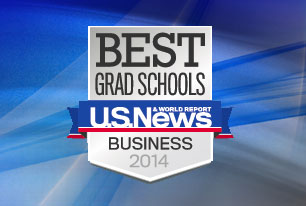 U.S. News & World Report’s 2013 ranking of the best Executive MBA programs in the U.S. feels a little bit like a television rerun.
U.S. News & World Report’s 2013 ranking of the best Executive MBA programs in the U.S. feels a little bit like a television rerun.
For the third consecutive year, the University of Pennsylvania’s Wharton School topped the list of the best, followed by No. 2 University of Chicago’s Booth School and No. 3 Northwestern University’s Kellogg School of Management.
With the exception of only one school, the University of Southern California’s Marshall School, which slipped to 11th from 10th place a year ago, the top ten look pretty much the same as well. Columbia Business School, the largest prestige player in the EMBA market, moved up one spot into a fourth place tie with Duke University’s Fuqua School.
New York University’s Stern School exchanged places with UCLA’s Anderson School, with Stern picking up one place to finish sixth while UCLA ranked seventh. The only school in the top ten to climb two places was the University of North Carolina’s Kenan-Flagler School which took ninth place, up from 11 in 2012. UNC’s two-place rise is most likely the result of its new online MBA program which has boosted the school’s overall profile in the executive space.
BIGGEST WINNERS: WASHINGTON UNIVERSITY & SOUTHERN METHODIST
This year’s biggest EMBA winners are Washington University’s Olin School, whose Executive MBA offering rose five places to finish 14th, and Southern Methodist University’s Cox School, whose EMBA jumped six spots to rank 15th. On the other hand, Marquette University plunged nine places to rank 24th, while Cornell University’s Johnson School dropped six spots to end up at 19th.
The U.S. News ranking, published yesterday (March 12, 2013), is based entirely on a survey of business school deans and MBA directors. The magazine said its survey to those school administrators had a response rate of 43%, though U.S. News failed to report how many officials were in the sample or what percentage of them filled out the section listing and ranking EMBA programs. So this specialty list differs significantly from U.S. News’ overall ranking for the best full-time MBA programs which uses many more metrics, from average GMAT and GPA scores of enrolled students to starting salaries and bonuses.
STANFORD ON THE LIST EVEN THOUGH IT DOESN’T HAVE AN EMBA
For yet another year, U.S. News’ list included Stanford’s Graduate School of Business, even though Stanford does not have an Executive MBA program. Instead, it has a one-year, full-time Sloan program for experienced managers, but that is not considered an EMBA program. The school’s inclusion is a strong reminder to users of the ranking not to take it too seriously.
The deans and MBA directors U.S. News asked to name and rank EMBA programs have no direct knowledge of these programs at other schools. They largely select schools on their overall reputations–which is how Stanford ends up on the list. (One other note: As a marketing ploy, U.S. News claims this is a 2014 ranking to give it greater shelf life. It is based on 2012 data and released in 2013 which is why we label it a 2013 ranking.)
There are other weird anomalies here as well and most of the oddest results occur toward the end of the list where the data gets very thin. If you were to believe this ranking, then you would have to agree with U.S. News that Cornell University’s EMBA program is no better than the one at Santa Clara University, Seattle University, St. Joseph’s University in Philadelphia, and Xavier University in Cincinnati. After all, U.S. News’ ranks all four of the Executive MBA programs at those schools 19th.
How could these schools possibly tie with Cornell for having one of the best EMBA programs in the U.S.? We offer two theories. One reason why Cornell slipped six places is more likely due to its unpopularity among rival MBA directors who are less than happy with the school’s EMBA partnership with Queen’s School of Business in Canada. The Cornell-Queen’s program now competes with local and regional business schools in 23 different markets, ranging from San Jose, CA, to Portland, OR, largely via a videoconferencing model that has raised eyebrows among other schools which have lost quality applicants to a bigger brand that is using technology to siphon off students they otherwise would get.
THE-YOU-SCRATCH-MY-BACK-I’LL-SCRATCH-YOURS RANKING
A cynic also might be tempted to point out that Seattle, St. Joseph’s, Xavier and Marquette, which U.S. News ranks at 24th just behind the four schools tied at 19, are all Catholic, Jesuit universities. In all liklihood, the deans or MBA directors of these schools all voted for themselves to get their schools on the U.S. News’ list. This you-scratch-my-back-and-I’ll-scratch-your-back approach is the only way that such third-tier business schools would be able to make the list over other more worthy EMBA programs.
This is less of a problem toward the top of the list where greater numbers of business school officials cast votes for the highest ranked EMBA programs. So the top dozen or so EMBA programs cited by U.S. News looks like a pretty credible list of the best in the U.S.
(See following page for our table of U.S. News’ top 25 Executive MBA programs)





Questions about this article? Email us or leave a comment below.